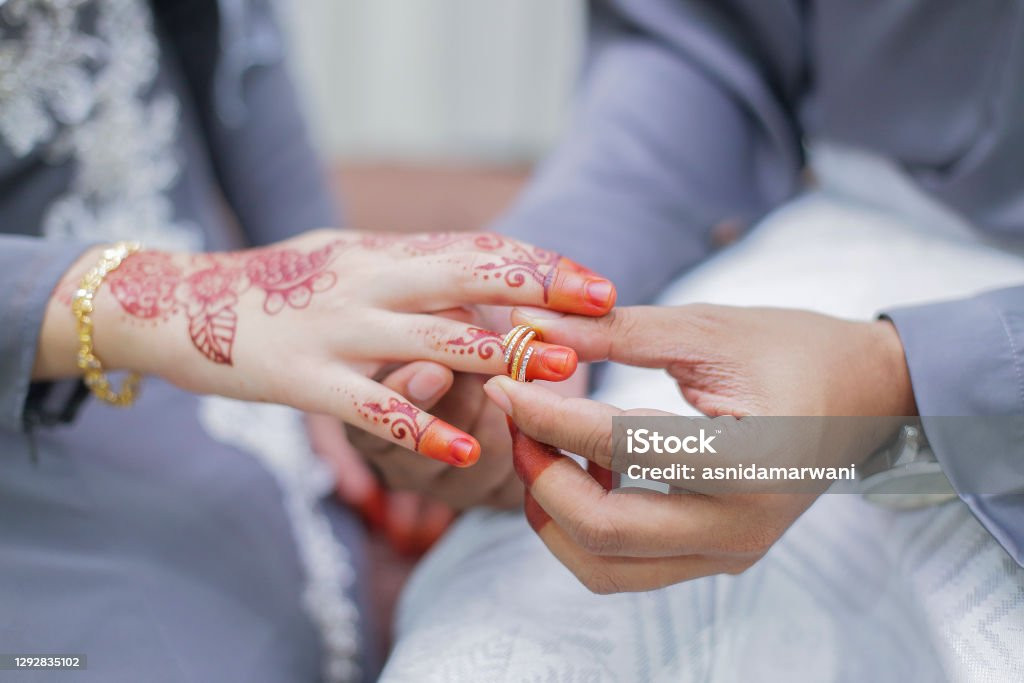
The correct way of Muslim marriage, according to Hadith
The correct way of Muslim marriage, according to Hadith (sayings and actions of Prophet Muhammad, peace be upon him), emphasizes simplicity, consent, and adherence to Islamic principles. Islamic marriage, often referred to as "Nikah," is a sacred contract between a man and a woman, with the goal of building a strong, loving, and God-conscious family. Here's an explanation of the correct way of Muslim marriage based on Hadith:
**1. Simplicity and Moderation:** One of the central teachings of Islam regarding marriage is simplicity. The Prophet Muhammad advised against extravagant weddings and encouraged simplicity. He said: "The best wedding is that upon which the least trouble and expense is bestowed." This Hadith underscores the importance of avoiding excessive spending and maintaining a moderate approach during the marriage process.
**2. Consent of Both Parties:** In Islam, the consent of both the bride and groom is paramount. The Prophet Muhammad emphasized the importance of seeking the woman's consent before finalizing the marriage. A Hadith narrates that a woman came to the Prophet and said, "My father has married me to a man against my will." The Prophet gave her the option to either accept the marriage or dissolve it.
**3. Mahr (Dower):** The concept of Mahr is a fundamental aspect of Islamic marriage. It is a gift from the groom to the bride, which symbolizes his commitment and responsibility toward her. The amount of Mahr is agreed upon by both parties before the marriage, and it is the bride's right to receive it.
**4. Witnesses and Announcement:** The marriage contract should be witnessed by two trustworthy Muslims who are present at the time of the marriage. The Prophet Muhammad stressed the importance of making the marriage public by announcing it. This ensures transparency and accountability.
**5. Walima (Wedding Feast):** After the marriage contract is signed, it is customary in Islam to hold a Walima, a wedding feast, to celebrate the union. The Walima can be grand or simple, but it should reflect the couple's financial capacity and should not be extravagant.
**6. Prayer and Seeking Blessings:** The couple is encouraged to pray for Allah's blessings on their marriage. The Prophet Muhammad advised newlyweds to recite specific prayers and supplications to seek Allah's guidance and protection in their new journey together.
**7. Kindness and Respect:** The Hadith emphasizes the importance of kindness, respect, and compassion between spouses. The Prophet Muhammad said: "The best of you are those who are best to their wives." This underscores the need for love, empathy, and understanding in a marital relationship.
**8. Marital Rights and Responsibilities:** The Hadith also outlines the rights and responsibilities of spouses in marriage. Husbands are instructed to provide for their wives and treat them with respect and kindness. Wives are encouraged to be obedient and supportive while maintaining their own rights and dignity.
In conclusion, the correct way of Muslim marriage, as outlined in Hadith, underscores the values of simplicity, consent, and adherence to Islamic principles. It emphasizes the importance of mutual respect, kindness, and responsibility between spouses. Islamic marriage is not only a legal contract but also a spiritual and moral commitment to building a harmonious and God-conscious family. Adhering to these principles ensures a strong foundation for a successful and blessed marital journey in accordance with Islamic teachings.